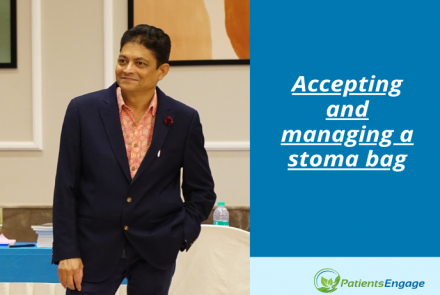
Types of colorectal cancer
Adenocarcinomas are the most common type of colorectal cancer. More than 90% of colorectal cancers are adenocarcinomas. These cancers arise from the cells of mucus secreting glands of the colon and rectum. Other less common tumours are gastrointestinal stromal tumour, gastrointestinal carcinoid tumour, primary colorectal lymphoma and sarcoma.
Stages of colorectal cancer
By knowing the stage of the cancer, the doctor can make a decision on the treatment and can predict the prognosis.
There are different ways of classifying the stage of the cancer. One of these is TNM Staging:
T describes the size or extent of the tumour.
- Tx - Tumour cannot be evaluated
- Tis - Carcinoma in situ
- T0 - No evidence of tumour in colon wall
- T1 - Cancer has spread through the mucosa to submucosa
- T2 - Cancer has spread through the submucosa to the muscle layer
- T3 - Cancer has spread through the muscle layer to serosa, but has not extended through serosa. It has not reached any nearby organs or tissue
- T4 – Cancer has extended through the serosa to nearby organs or tissue
N describes the spread of tumour to nearby lymph nodes
- Nx - No lymph node can be evaluated
- N0 - No cancer in nearby lymph nodes
- N1
- a - Cancer cells are found at least in one nearby lymph node
- b - Cancer cells are found in two to three lymph nodes
- c - Small groups of cancer cells are found in structure near lymph node but not in lymph nodes themselves
- N2
- a - Cancer cells are found in four to six nearby lymph nodes
- b - Cancer cells are found in seven or more nearby lymph nodes
M describes the presence of distant metastasis
- M0 - No distant spread
- M1a - Cancer has spread to one distant organ or group of distant lymph nodes
- M1b - Cancer has spread to more than one distant organ or set of distant lymph nodes
Colorectal cancer stage grouping is another way to classify cancer.
Stage 0 (carcinoma in situ): In stage 0, abnormal cells are found in the inner-most layer (mucosa) of the colon and rectum wall.
Stage I: Cancer has spread to the tissues below the mucosa (submucosa) and invaded the muscular layer of colon and rectum wall. Cancer has not spread to the outer wall.
Stage II: Stage II is divided into stage IIA, IIB and IIC
- Stage IIA: Cancer has grown in the colon and rectum wall and extended to the muscular layer to the serosa but has not spread to the nearby lymph node or tissue
- Stage IIB: Cancer has spread through the serosa but not to nearby lymph node
- Stage IIC: Cancer has spread through the serosa and into adjacent tissue
Stage III: Stage III is divided into IIIA, IIIB, and IIIC.
- Stage IIIA: Cancer may have spread through the mucosa and submucosa and may have spread to the muscular layer of the colon. Cancer has spread to one but not more than three lymph nodes or cancer cells are found in the adjacent tissue or Cancer may have spread through the mucosa and submucosa but has not involved the muscular layer. At least four but not more than six nearby lymph nodes are involved
- Stage IIIB: Cancer has spread to the serosa or has spread through the serosa but not to the nearby organs. Cancer has spread to one but not more than three nearby lymph nodes or Cancer has spread to the serosa. Cancer has spread to at least four but not more than six nearby lymph nodes or has spread to the mucosa, submucosa and may have spread to the muscle layer. Cancer has spread to seven or more nearby lymph nodes.
- Stage IIIC: Cancer has spread through the serosa of the colon but not to the nearby organs. Cancer has spread to at least four but not more than six nearby lymph nodes or has spread to or through the serosa of the colon wall but not to nearby organs. Cancer has spread to seven or more lymph nodes or has spread through the serosa of the colon wall to the nearby organs. Cancer has spread to one or more nearby lymph node
Stage IV: Cancer has spread to distant organs (metastasis) such as liver, lung or ovaries and to distant lymph nodes.

















